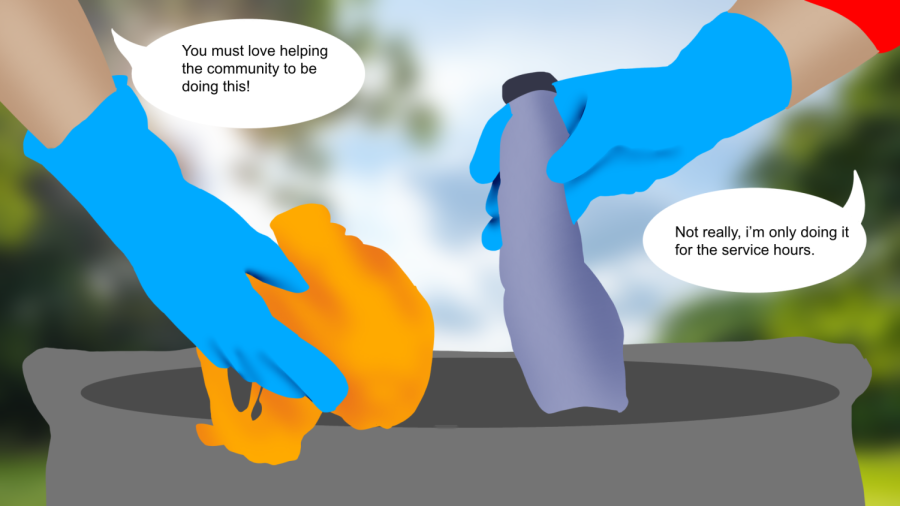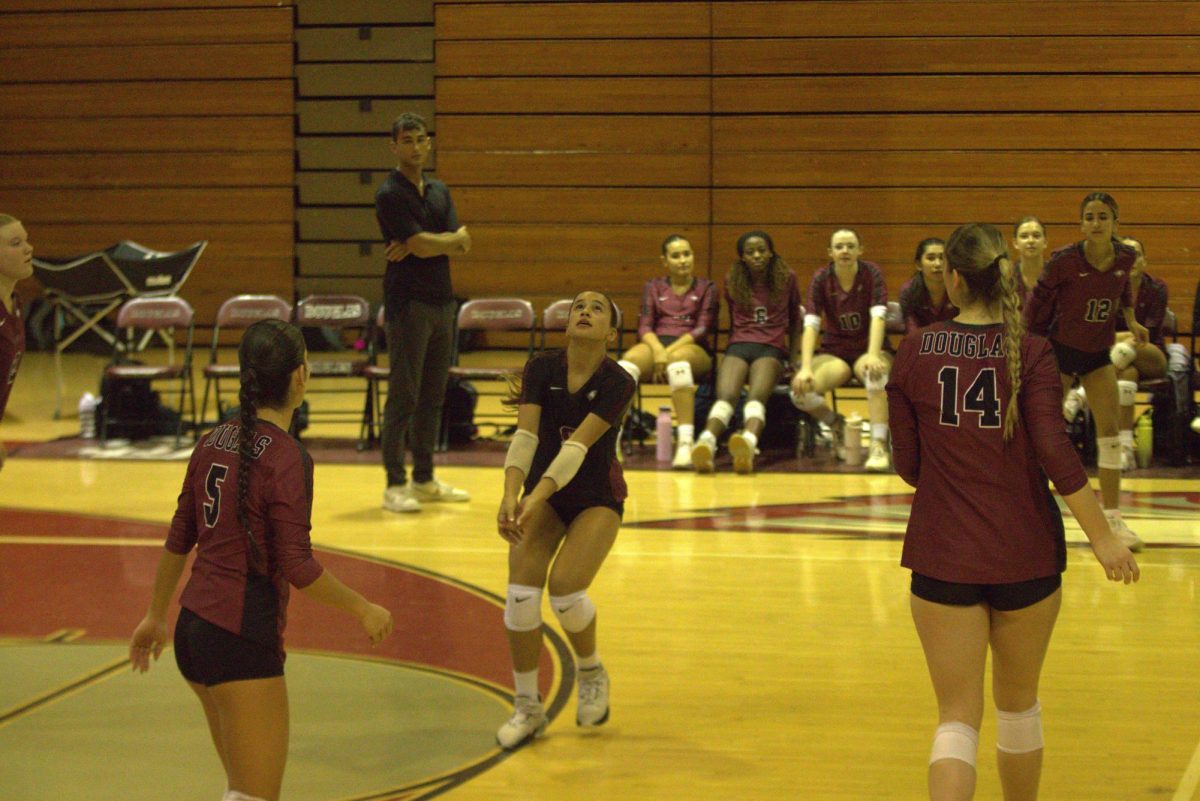[Opinion] Students engage in extracurricular activities for their own benefits
Students do extracurricular activities for their own benefit and don’t really care for the environment.
September 28, 2022
Over the years, competition between students applying to colleges and universities has increased. More students want to go to college and get into a good school, upping the game throughout all four years of high school. Class rankings, college admission tests, course requirements and community service are a looming anxiety every year for those wanting to get into the best of the best schools.
Other than the core requirements for a “good students” education, there are the voluntary options such as extracurriculars and service hours. While those may not seem like a big deal, they are highly regarded additions to a student’s resume and application. Some colleges even rank extracurriculars above one’s college essay or letters of recommendation in the college application process.
With the expectations and competition of college applications combined, many choose to go above and beyond to get ahead of the game and rank higher. This could lead to students choosing quantity over quality, and completely missing the point of extracurriculars which is to show one’s commitment and passions.
Part of the problem is that in addition to participating in existing clubs, students decide to make their own way to get brownie points from college admissions. In some cases, this can be a good thing that can show strong traits like leadership and initiative in those who truly feel passionate. Yet there are some student’s own goals that can get in the way of a club’s purpose, which may seem lazy or insincere.
There are positives to making your own club rather than joining an existing one and putting in an effort to get an officer position. When you start a club, you have the immediate choice to become the president and have the ability to influence decisions made in it.
However, if the club president does not garner enough interest outside of the board members, the club could fail and not return the next year. Essentially the club loses its meaning and is just a tool to show colleges a student’s personal achievements. Compared to students who show interest in a club and want other students to continue it, it seems as if there is no passion or sincerity behind forming it.
As with many clubs formed, it is difficult to run a group for a number of members and ensure you meet requirements. Smaller clubs like those formed by students looking for a quick achievement fly under the radar of school administration, not having to put time and effort into meeting the requirements. They would not have as much stress on club meetings, hours put in or contributions to the school, unlike larger existing clubs.
Besides clubs, service hours are another emphasis for college credits. Even though the required 40 hours is reasonable, it starts to get tiresome when every club requires a large amount of service hours per semester. For many clubs, including prestigious honors societies, there are service hour requirements that can determine whether you can stay in the club or get kicked out.
Even if a student wants to be passionate about a specific service project, it is hard when they have to achieve set hours for each club they participate in. Hours stop becoming voluntary and become mandatory for many students. That is when earning service hours turns into jumping from project to project with the sole goal of just getting the hours, instead of putting any actual thought behind it.
Colleges want students to show their passions and involvement, but that’s hard to do when you have to join multiple clubs and put less time into clubs that you may actually be interested in. Lessening the pressure of having so many extracurriculars would allow students to discover what they are passionate about and what they want to do in the future. Instead of a student spreading themselves thin, they could put all their effort into something they want to do long term.
Although it is important to engage in extra activities, it gets to a point where you start sacrificing the things you’re passionate about for those that may sound better on an application. If everyone is so competitive and participates in the same way, what makes them unique?











